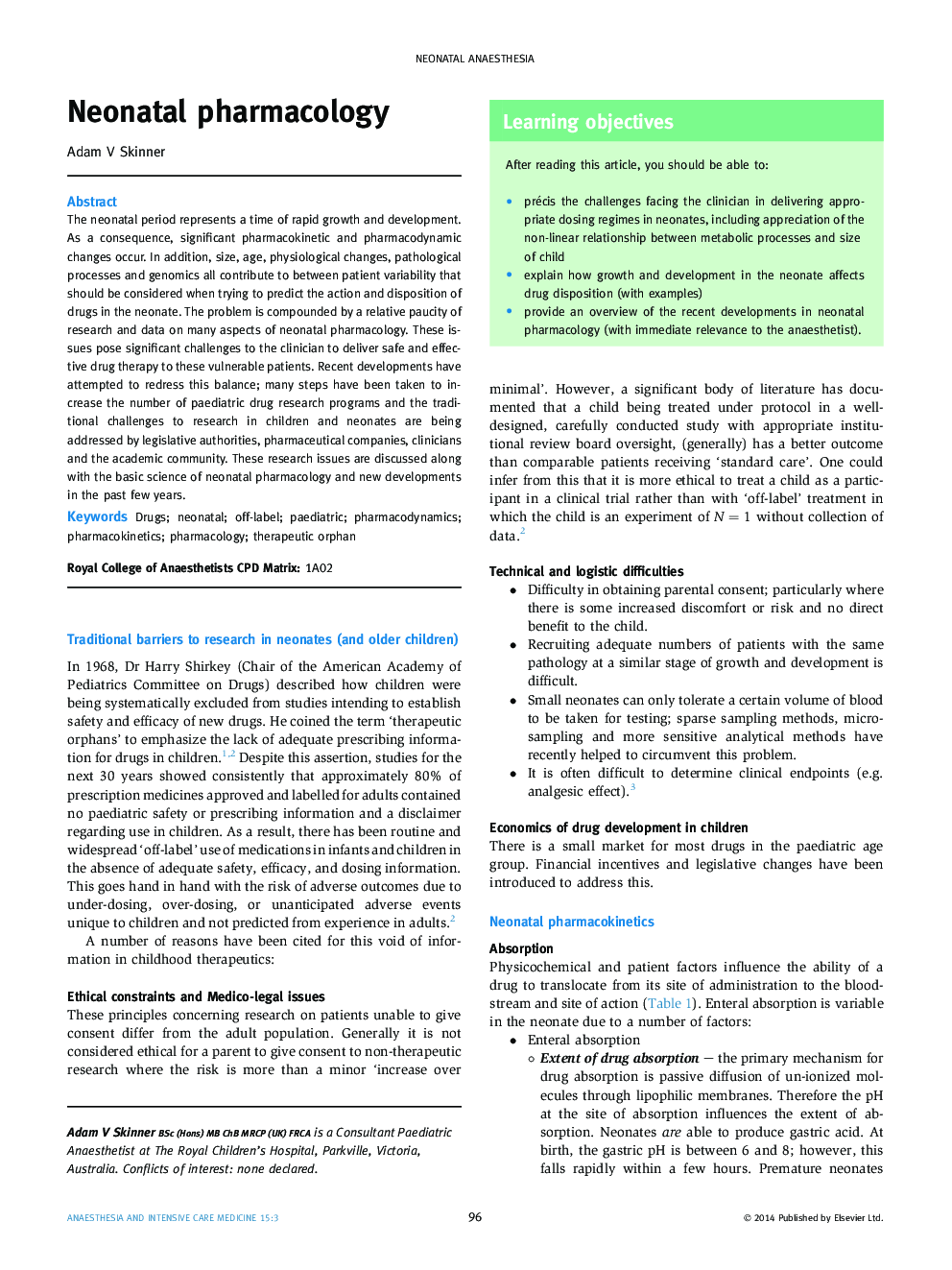| Article ID | Journal | Published Year | Pages | File Type |
|---|---|---|---|---|
| 2742358 | Anaesthesia & Intensive Care Medicine | 2014 | 7 Pages |
The neonatal period represents a time of rapid growth and development. As a consequence, significant pharmacokinetic and pharmacodynamic changes occur. In addition, size, age, physiological changes, pathological processes and genomics all contribute to between patient variability that should be considered when trying to predict the action and disposition of drugs in the neonate. The problem is compounded by a relative paucity of research and data on many aspects of neonatal pharmacology. These issues pose significant challenges to the clinician to deliver safe and effective drug therapy to these vulnerable patients. Recent developments have attempted to redress this balance; many steps have been taken to increase the number of paediatric drug research programs and the traditional challenges to research in children and neonates are being addressed by legislative authorities, pharmaceutical companies, clinicians and the academic community. These research issues are discussed along with the basic science of neonatal pharmacology and new developments in the past few years.
